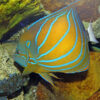The Royal Influence on the Development of Classical Chinese Literature

Classical Chinese literature is a rich and enduring cultural treasure that spans millennia, shaped by philosophical traditions, historical events, and the influence of ruling dynasties. The royal courts of ancient China, especially the emperors, were central to the cultivation and preservation of this literary heritage. Emperors and their courts not only acted as patrons of the arts but were often directly involved in literary creation, influencing the evolution of Chinese literary forms, themes, and expressions. The intricate relationship between royal figures and the development of Chinese classical literature is a testament to the deep connection between governance, culture, and intellectual life in China’s history.
In this article, we will explore how the royal family and the courts contributed to the development of classical Chinese literature, with a focus on key historical periods, famous literary figures, and significant literary works. From the Zhou Dynasty through the Tang, Song, and Qing Dynasties, the Chinese imperial family played a crucial role in shaping the trajectory of literary expression in the Middle Kingdom.
1. Early Beginnings: The Zhou Dynasty and the Rise of Poetic Tradition
The earliest forms of Chinese literature can be traced back to the Zhou Dynasty (1046-256 BCE), which laid the foundation for many of China’s literary traditions. The royal family of the Zhou Dynasty actively supported the development of written texts, including poetry, philosophy, and historical records, helping to set the stage for the flourishing of classical Chinese literature in later periods.
One of the most influential collections of literature from the Zhou Dynasty is the Shijing (詩經, Book of Songs), which consists of 305 poems that reflect the daily life, emotions, and rituals of early Chinese society. Many of these poems were composed by court officials and noble families, including members of the royal family. The poems of the Shijing often deal with themes of love, agriculture, and governance, providing a window into the values and concerns of the Zhou Dynasty’s aristocracy. The royal patronage of poetry during this period helped to establish the importance of literature as a vehicle for expressing political and moral ideas.
The Zhou royal family also played a role in preserving and promoting Confucian values, which would later become deeply influential in the development of Chinese literature. Confucius, the most important philosopher of ancient China, greatly influenced the royal courts with his teachings, many of which emphasized the importance of education, moral integrity, and literary cultivation. His influence would be felt for centuries, with Confucianism shaping the moral framework for Chinese literature, particularly in the form of historical records, political writings, and philosophical treatises.
2. The Han Dynasty: Establishment of Literary Traditions
The Han Dynasty (206 BCE–220 CE) marks a period of consolidation and growth for the literary traditions of China, with the royal family playing an integral role in the development of these traditions. Under Emperor Wu of Han, who ruled from 141 BCE to 87 BCE, the state adopted Confucianism as the official ideology, which had profound effects on literature. Confucian scholars became official court members, and their works helped to define the classical literary canon.
One of the most important works from the Han Dynasty is the Shiji (史記, Records of the Grand Historian) by the historian Sima Qian, who served under Emperor Wu. The Shiji is considered one of the most important historical texts in Chinese literature and is often regarded as the prototype of Chinese historiography. It provided a comprehensive history of China from the earliest mythological times through to the Han period, and its influence on later Chinese historical writing cannot be overstated. The royal family’s patronage of Sima Qian’s work ensured that history would be recorded in a systematic and literary form, setting the tone for future historical writing in China.
During the Han Dynasty, poetry continued to be a significant literary form, with royal family members often serving as poets themselves. The imperial family provided patronage for poets and artists, encouraging them to compose works that praised the emperor’s achievements and expressed loyalty to the throne. These works often combined the artistic and political, demonstrating how the royal family’s patronage was integral to the development of Chinese literature.
3. The Tang Dynasty: A Golden Age of Literature
The Tang Dynasty (618-907 CE) is often regarded as a golden age of Chinese literature, with the imperial family playing a significant role in its development. During the Tang period, the court actively fostered a literary environment that encouraged poets, scholars, and writers to flourish. Emperor Taizong of Tang and his successors were deeply involved in literary patronage, and their court attracted some of the most renowned poets in Chinese history.
The Tang Dynasty is especially famous for its poetry, and emperors like Taizong and Xuanzong (who ruled from 712 to 756) wrote their own poetry while also supporting the work of famous poets such as Li Bai and Du Fu. These poets often wrote about themes of nature, politics, personal reflection, and the changing seasons. Emperor Taizong himself was an avid poet, and his works reflect a blend of personal emotions and political themes, emphasizing the emperor’s role as a wise and virtuous ruler.
Li Bai, known as the “Immortal Poet,” was particularly beloved by the Tang court. His poetry was characterized by its romanticism, spontaneity, and profound appreciation of nature. Many of his poems were written in praise of the beauty of the natural world and the joys of life, but also touched on themes of exile and political disillusionment. Li Bai’s works are a testament to the cultural vibrancy of the Tang court and the royal family’s appreciation for literature and art.
Du Fu, another giant of Tang poetry, was a court official whose poetry often reflected the social and political upheaval of his time. Unlike Li Bai’s romanticism, Du Fu’s poems were more reflective and often conveyed deep moral and ethical concerns. His poetry praised the virtues of Confucian governance and reflected the emperor’s role in maintaining harmony and stability in the empire.
The Tang Dynasty’s promotion of literature resulted in the flourishing of a poetic tradition that would influence Chinese literature for centuries. The royal patronage of poets and intellectuals helped to foster a vibrant literary culture, and the Tang court’s influence on Chinese poetry remains profound to this day.
4. The Song Dynasty: Intellectual Growth and the Development of Prose
The Song Dynasty (960-1279 CE) marked a shift in literary focus from poetry to prose. The Song imperial family, particularly during the reign of Emperor Taizu and his successors, fostered a vibrant intellectual environment that saw the growth of new literary forms such as historical narratives, philosophical treatises, and scientific works. The royal court played a crucial role in supporting the intellectuals and scholars who would define the literary landscape of the Song period.
One of the most significant literary developments of the Song Dynasty was the creation of ci poetry, a form of verse that is characterized by its strict meter and emotional expressiveness. While poetry remained popular, the rise of the ci genre marked a new direction in Chinese literary history. The imperial family supported the works of scholars who were instrumental in developing this new form, including the poet Su Shi, who is regarded as one of the most important figures in the history of Chinese literature.
Prose also flourished during the Song Dynasty, particularly in the realm of historical and philosophical writing. Scholars at the court produced works that would shape Chinese historiography, such as the Zizhi Tongjian (资治通鉴, Comprehensive Mirror for Aid in Government) by Sima Guang, which became a standard reference for historians. The Song Dynasty’s royal family also encouraged the writing of texts that synthesized Confucian philosophy with other intellectual traditions, such as Daoism and Buddhism, helping to create a more diverse and integrated intellectual environment.
5. The Qing Dynasty: Preservation and Innovation in Literature
The Qing Dynasty (1644-1912) was the last imperial dynasty of China, and during its reign, the royal family continued to support literary endeavors, albeit with more emphasis on preserving traditional forms. The Qing emperors, particularly Emperor Kangxi and Emperor Qianlong, were great patrons of the arts and took a keen interest in literature. Emperor Kangxi himself was a scholar and a poet, while Emperor Qianlong, a lover of poetry and history, wrote numerous poems and oversaw the compilation of important literary projects.
One of the most significant literary endeavors of the Qing Dynasty was the Siku Quanshu (四库全书, Complete Library of the Four Treasuries), an immense project commissioned by Emperor Qianlong to compile all significant works of Chinese literature up to that point. The Siku Quanshu includes works in every genre, from poetry and history to philosophy and science, and represents the Qing Dynasty’s commitment to preserving and consolidating China’s literary legacy.
In the later Qing period, the royal family’s interest in literature began to wane as the dynasty faced internal and external challenges. However, the Qing emperors’ patronage of literature and their involvement in scholarly activities ensured that Chinese literary traditions were preserved during a time of change. The Qing period also saw the rise of new literary forms, such as the novel, which gained widespread popularity and became a central feature of Chinese literature.
Conclusion: The Enduring Influence of the Royal Family on Classical Chinese Literature
The royal families of China played a crucial role in the development of classical Chinese literature, from the Zhou Dynasty through the Qing Dynasty. Their patronage, support, and active involvement in the literary world helped shape the intellectual and cultural environment of China for centuries. Whether through the promotion of poetry, the compilation of historical texts, or the cultivation of scholarly thought, the emperors of China were instrumental in creating and preserving the rich literary heritage that continues to be a source of pride and inspiration today.
As we look back at the contributions of China’s royal families to literature, it becomes clear that their involvement in the literary arts was not only a reflection of their intellectual pursuits but also a vital tool for governance, cultural unity, and national identity
. The legacy of imperial patronage in the literary world is a testament to the enduring power of the written word in shaping the course of history.

